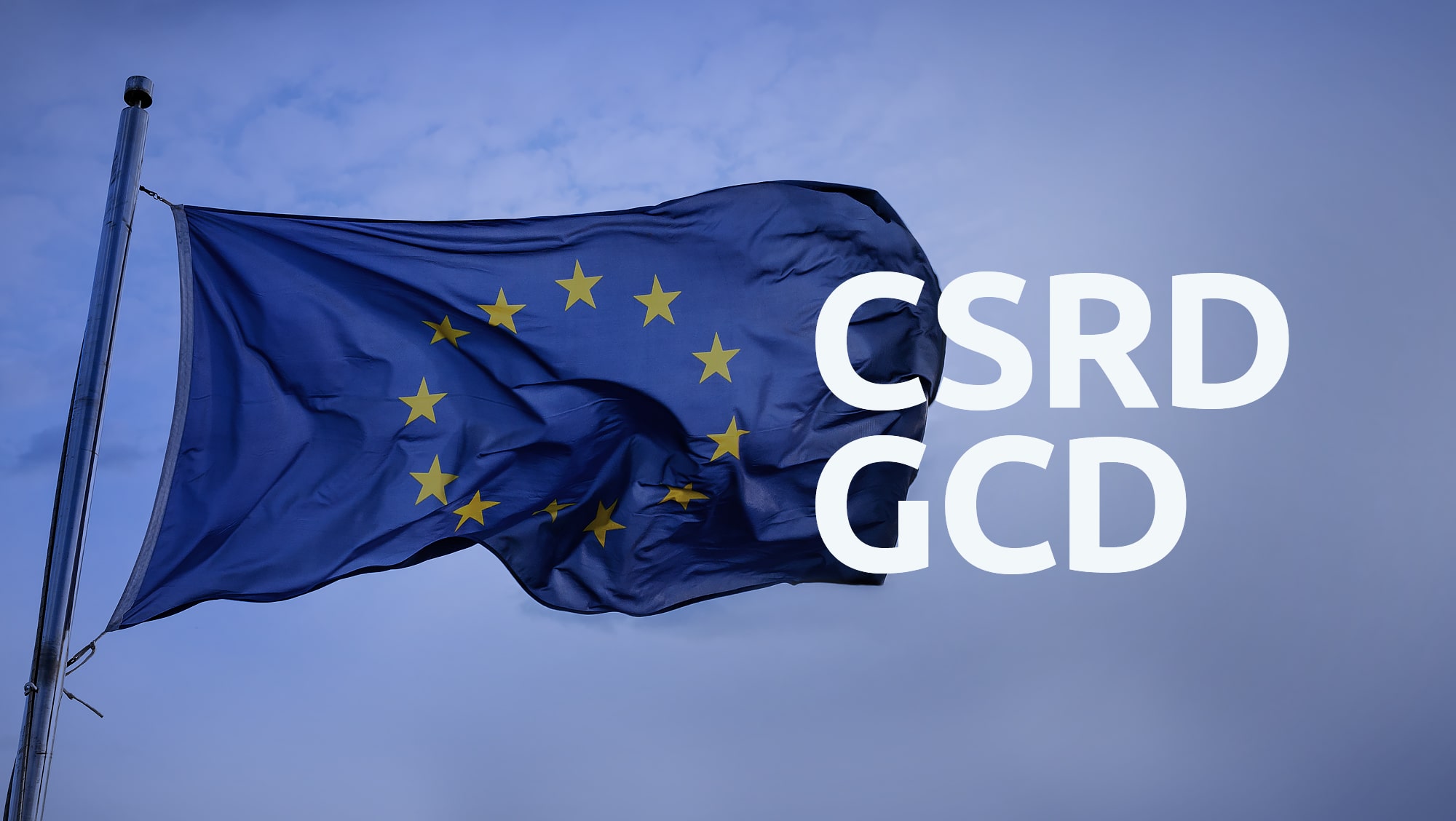
blogs
Exploring the CSRD and the GCD – EU’s Regulatory Pillars for Corporate Sustainability in 2023
Over the past few years, we have all seen multiple headlines about companies making strides with their sustainable and green initiatives. Well, more than half (namely 53%) of these claims are exaggerated, false, or deceptive, according to the European Commission. The result? It becomes increasingly challenging to trust the viability of these claims made by businesses.
So, the pressing question arises: what is the way forward? Recognizing the gravity of this situation, the European Union has implemented strict regulations to combat greenwashing in conjunction with the urgency of climate change and global warming. This emerging regulatory framework is supported by multiple legislative projects, with two of the most prominent being the Corporate Sustainability Reporting Directive (CSRD) and the Green Claims Directive (GCD).

And this is just the start – further initiatives are expected in the near future, driven by increasing pressure from both consumers. On June 1st, the European Parliament approved the Corporate Sustainability Due Diligence Directive (CSDDD), which aims to create a European framework ensuring that companies and their suppliers adopt responsible and sustainable practices in global value chains, acknowledging the crucial role of companies in building a sustainable society and economy.
To understand how these legislative initiatives shape our futures, let’s explore the particularities of both CSRD and GCD alongside the opportunities and challenges most businesses should consider:
CSRD (the Corporate Sustainability Reporting Directive)
Part of the European Green Deal, the CSRD is part of a series of policy initiatives by the European Commission. In the grand scheme, the overarching objective is to make the European Union capable of diminishing net greenhouse gas emissions by at least 55% by 2030 compared to 1990 levels and achieving climate neutrality by 2050.
In January 2023, the European Union passed the CSRD, which mandates that nearly 50,000 qualifying large organizations and SMEs in various sectors report on ESG (Environmental, Social, and Governance) metrics. The CSRD aims to ensure that large and/or listed companies regularly disclose information about the social and environmental risks they encounter, as well as the impact of their activities on human rights and the environment. The goal is to enable investors, civil society organizations, consumers, and other stakeholders to assess the sustainability of these companies.
Representing one of the pillars of the CSRD, the double materiality assessment determines the reporting scope by considering impacts on people and the environment, as well as sustainability matters that financially affect the company. Note that this assessment requires a more complex approach than traditional materiality assessments, such as those based on GRI, as it encompasses both impact materiality and financial materiality.
GCD (the Green Claims Directive)
In March 2023, the Commission adopted a proposal for the GCD, which establishes comprehensive guidelines for how companies should market their environmental impacts and performance. The Directive will apply to both EU and non-EU enterprises that make environmental claims targeting EU consumers. Currently, the proposal is undergoing an extensive approval process involving the European Parliament and the EU Council, followed by adoption by member states.
To demonstrate the credibility of green claims, an accredited verifier must meet and verify specific criteria. Examples of green claims, such as “packaging containing 20% recycled plastic,” “carbon compensated ride,” or “sustainably sourced cream,” need to be supported by scientific evidence and fair comparisons. Independent verifiers will assess the claims against the Directive’s requirements and issue a certificate of conformity recognized throughout the EU.
Under the GCD, businesses will also have communication obligations to provide customers with information on the product and the substantiation of their claims. Note that the companies will bear the cost of substantiating their claims, as the Green Claims Directive requires robust, science-based evidence of the claimed products’ positive environmental impacts, aspects, or performance.
Exploring the Opportunities & Challenges for Businesses…
The clock is ticking as the Member States have 18 months to incorporate CSRD and GCD regulations into national law, with the flexibility to introduce stricter provisions and determine areas left to individual discretion. So, what’s next? Most companies can leverage these regulatory developments to establish a comprehensive and continuously evaluated approach to green claims. The result? They might differentiate their brand and reputation from competitors, build consumer credibility, and ensure compliance. In parallel, businesses making green claims for products or services in the EU should assess their claims against the proposed new rules and make necessary changes or qualifications.
Currently, the lack of reliable systems and procedures represents a significant obstacle to collecting and verifying data on ESG performance before it can be reported. Complying with CSRD and GCD entails dedicating resources, such as staff training, implementing new procedures, and potentially changing partners and subcontractors. Non-compliance with these can lead to significant financial penalties, and, as a domino effect, it can erode trust from customers and stakeholders, resulting in reduced business activity.
All of this demands a greater awareness and comprehension of what we’re actually talking about to begin with. Even more, this goes well beyond compliance with the law to include a wide range of other sustainability-related business considerations – extending to proactive engagement with stakeholders and a heightened focus on their priorities. Likewise, it involves identifying potential risks or opportunities that may emerge and re-evaluating the fundamental trade-offs associated with business decisions in the context of sustainability. Through proactively addressing these dimensions, businesses might overcome the complexities of sustainability and make informed choices that drive positive outcomes.
We cannot afford to remain passive spectators – policymakers, business leaders, and the general public must take immediate steps to foster a deeper awareness and acquire a deeper understanding of sustainability-related developments. Remember that this is the only way in which we can stay ahead of the curve and anticipate what’s coming.
